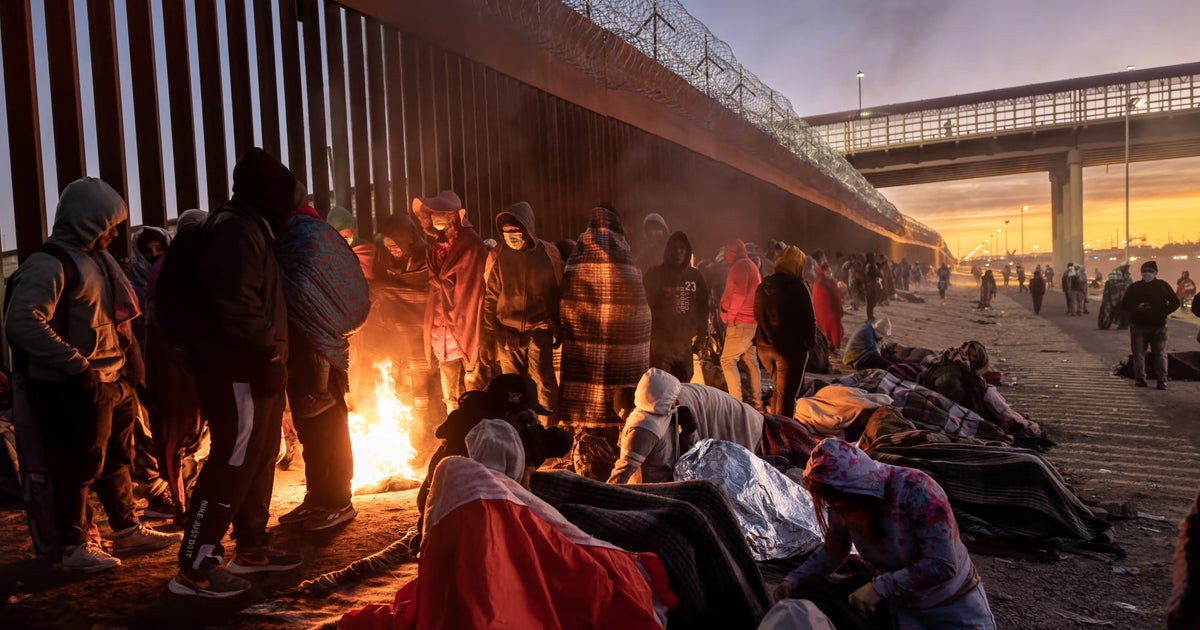Portugal's Migrant Expulsions: From Welcoming Nation To Stricter Policies?

Table of Contents
The Historical Context: Portugal's Welcoming Reputation
Portugal's history is interwoven with immigration. Historically, Portugal has been both a source and a recipient of migration, with waves of emigration throughout the 20th century, particularly to former colonies and other European countries. However, in more recent decades, Portugal has also become a destination for asylum seekers and migrants from various regions, including Africa, South America, and Eastern Europe. This influx has been shaped by Portugal's participation in EU immigration policies and its historical ties with its former colonies, resulting in a diverse migrant population.
- Positive aspects of Portugal's past immigration policies: Relatively lenient asylum procedures, integration programs, and a generally welcoming social atmosphere.
- Economic benefits of immigration for Portugal: Filling labor shortages in sectors like agriculture and tourism, contributing to economic growth, and boosting innovation.
- Social integration efforts: Government initiatives promoting language learning, cultural exchange programs, and access to social services for immigrants.
The Rise of Stricter Immigration Policies
Several factors have contributed to Portugal's shift towards stricter immigration policies. The 2008 economic crisis exposed vulnerabilities in the social safety net, leading to a rise in anti-immigrant sentiment amongst some segments of the population. This sentiment has been amplified by the rise of nationalist and populist narratives across Europe. Furthermore, pressure from other EU nations to comply with stricter border controls and asylum regulations has influenced Portugal's approach.
- Specific examples of stricter enforcement of immigration laws: Increased border patrols, more rigorous checks on documentation, and harsher penalties for employers hiring undocumented workers.
- Increased deportations of undocumented migrants: A noticeable rise in the number of migrants being forcibly returned to their countries of origin, often without due process.
- Changes in asylum application procedures: Lengthier processing times, stricter criteria for granting asylum, and increased rejection rates for asylum seekers.
- Public perception of immigration and its influence on policy: Surveys and public discourse reveal a growing segment of the population expressing concerns about immigration, impacting political agendas.
The Impact of the EU on Portugal's Immigration Policies
The European Union's framework significantly impacts Portugal's immigration policies. The Dublin Regulation, for example, places the responsibility for processing asylum applications on the first EU country of entry. This has placed considerable strain on Portugal, particularly given its geographical location.
- EU quotas and their effect on Portugal's migrant population: While Portugal has received EU-mandated quotas for refugees, managing the influx has presented logistical and financial challenges.
- Challenges faced by Portugal in managing EU-mandated immigration policies: Resource constraints, bureaucratic hurdles, and the need for improved infrastructure to handle asylum applications efficiently.
- Potential conflicts between national interests and EU regulations: Balancing Portugal's national interests with its obligations under EU immigration law continues to be a delicate task.
The Human Cost of Portugal's Migrant Expulsions
The increased focus on deportations and stricter policies carries a significant human cost. Stories emerge of families separated, individuals facing precarious situations upon return to their home countries, and allegations of human rights violations during the deportation process.
- Cases of forced returns and their impact on families: The trauma inflicted on families separated by deportation, with lasting psychological and emotional consequences.
- Challenges faced by deported migrants upon return to their home countries: Reintegration difficulties, lack of social support, and the potential for facing persecution or violence.
- Violation of human rights and international law concerns: Reports of due process violations and inhumane treatment during detention and deportation raise serious human rights concerns.
The Future of Immigration in Portugal
Predicting the future of immigration in Portugal is challenging. Continued stricter policies could lead to a decrease in the migrant population, potentially impacting labor markets and economic growth. Conversely, a more balanced approach, incorporating comprehensive integration programs and addressing public concerns in a constructive manner, might lead to a more sustainable and inclusive immigration system.
- Potential economic impact of reduced immigration: Labor shortages in certain sectors, slower economic growth, and a decline in innovation.
- Social consequences of more restrictive immigration policies: Increased social division, marginalization of immigrant communities, and a decline in cultural diversity.
- Predictions for future government policy on Portugal's migrant expulsions: Potential for further tightening of immigration laws or for a shift towards a more balanced, humane approach, depending on political and social developments.
- Potential for reform and a more balanced approach: Opportunities to reform the immigration system by improving integration programs, streamlining asylum procedures, and addressing public concerns with transparency and empathy.
Conclusion
Portugal's shift regarding Portugal migrant expulsions from a welcoming nation to one with stricter policies is a complex issue with far-reaching consequences. The factors contributing to this change are multifaceted, ranging from economic pressures to evolving public sentiment and EU regulations. Understanding the historical context, the human cost, and the potential long-term impacts is crucial for informed discussion and policy adjustments. We must strive for a more humane and balanced approach to immigration that acknowledges both the needs of the nation and the rights of migrants. Further research and analysis are needed to understand the full scope of Portugal migrant expulsions and to develop sustainable solutions that address the challenges and opportunities presented by immigration. We encourage readers to continue engaging with this vital issue and to advocate for policies that reflect the values of compassion and fairness.

Featured Posts
-
 Un Algerien Expulse De France Apres Avoir Denonce Le Genocide A Gaza
May 14, 2025
Un Algerien Expulse De France Apres Avoir Denonce Le Genocide A Gaza
May 14, 2025 -
 Kontseptsiya Yevrobachennya 2025 Opera V Nespodivanomu Mistsi Sauni
May 14, 2025
Kontseptsiya Yevrobachennya 2025 Opera V Nespodivanomu Mistsi Sauni
May 14, 2025 -
 5 Partidos Historicos Valencia Sevilla Rivalidad Y Emocion
May 14, 2025
5 Partidos Historicos Valencia Sevilla Rivalidad Y Emocion
May 14, 2025 -
 Nationwide Recall Walmarts Action On Unsafe Baby Products
May 14, 2025
Nationwide Recall Walmarts Action On Unsafe Baby Products
May 14, 2025 -
 Why Captain America Brave New Worlds Box Office Total Is Among The Lowest In The Mcu
May 14, 2025
Why Captain America Brave New Worlds Box Office Total Is Among The Lowest In The Mcu
May 14, 2025
Latest Posts
-
 Liverpool Transfer News Latest On Huijsen From Bournemouth
May 14, 2025
Liverpool Transfer News Latest On Huijsen From Bournemouth
May 14, 2025 -
 Newcastles Premier League Target Defender Move Unlikely
May 14, 2025
Newcastles Premier League Target Defender Move Unlikely
May 14, 2025 -
 Donny Huijsen Johan Derksen Spreekt Over Invloed Verkeerde Vrienden
May 14, 2025
Donny Huijsen Johan Derksen Spreekt Over Invloed Verkeerde Vrienden
May 14, 2025 -
 Bournemouths Huijsen A Potential Liverpool Transfer Target
May 14, 2025
Bournemouths Huijsen A Potential Liverpool Transfer Target
May 14, 2025 -
 Vandaag Inside Derksens Onthullingen Over De Vader Van Dean Huijsen
May 14, 2025
Vandaag Inside Derksens Onthullingen Over De Vader Van Dean Huijsen
May 14, 2025
